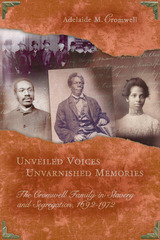2 books about 1883-1971

The Shiga Hero
William F. Sibley
University of Chicago Press, 1979
Shiga Naoya (1883-1971), one of Japan's foremost modern writers, is known primarily for his spare, intense short stories. Highly subjective, Shiga's work belongs to the genre of "personal" or "psychological" fiction; much of his raw material is rooted in his own inner experience. His incisive style and disregard of the formal aspects of fiction present a vision of the world that is at times "primitive" and archetypal. Shiga relentlessly explores the vision through the viewpoint of a single central character who appears in almost all his works.
Sibley unifies Shiga's sparse, fragmented narratives by reconstructing the cyclical biography of this imaginary hero. Through an analysis of Shiga's psychoanalytic and mythopoetic approach to fiction, Sibley develops a useful model for the study of personal writers.
In recreating the life of Shiga's hero, Sibley uncovers a close link between the fictional hero and Shiga himself. Sibley finds an important part of Shiga's purpose as a writer was to "psychoanalyze" himself by projecting various personal problems onto this fictional alter ego.
Ten newly translated stories complement Sibley's analysis of Shiga's work. In this second part of the book, one encounters Shiga's hero at various stages of development: as a child facing the early loss of his mother and an uneasy relationship with his cold, distant father; as an adolescent encountering death and punishment; and as an adult searching for solace in solitary contemplation of life. Shiga renders these experiences through a highly textured prose and symbolic vocabulary. Sibley's integral text makes this major Japanese writer accessible to readers of English for the first time in a fascinating and original way.
Sibley unifies Shiga's sparse, fragmented narratives by reconstructing the cyclical biography of this imaginary hero. Through an analysis of Shiga's psychoanalytic and mythopoetic approach to fiction, Sibley develops a useful model for the study of personal writers.
In recreating the life of Shiga's hero, Sibley uncovers a close link between the fictional hero and Shiga himself. Sibley finds an important part of Shiga's purpose as a writer was to "psychoanalyze" himself by projecting various personal problems onto this fictional alter ego.
Ten newly translated stories complement Sibley's analysis of Shiga's work. In this second part of the book, one encounters Shiga's hero at various stages of development: as a child facing the early loss of his mother and an uneasy relationship with his cold, distant father; as an adolescent encountering death and punishment; and as an adult searching for solace in solitary contemplation of life. Shiga renders these experiences through a highly textured prose and symbolic vocabulary. Sibley's integral text makes this major Japanese writer accessible to readers of English for the first time in a fascinating and original way.
[more]

Unveiled Voices, Unvarnished Memories
The Cromwell Family in Slavery and Segregation, 1692-1972
Adelaide M. Cromwell
University of Missouri Press, 2006
When an industrious slave named Willis Hodges Cromwell earned the money to obtain liberty for his wife—who then bought freedom for him and for their children—he set in motion a family saga that resounds today. His youngest son, John Wesley Cromwell, became an educator, lawyer, and newspaper publisher—and one of the most influential men of letters in the generation that bridged Frederick Douglass and W. E. B. Du Bois. Now, in Unveiled Voices, Unvarnished Memories, his granddaughter, Adelaide M. Cromwell, documents the journey of her family from the slave marts of Annapolis to achievements in a variety of learned professions.
John W. Cromwell began the family archives from which this book is drawn—letters and documents that provide an unprecedented view of how one black family thought, strived, and survived in American society from the seventeenth century to the twentieth. These papers reflect intimate thoughts about such topics as national and local leaders, moral behavior, color consciousness, and the challenges of everyday life in a racist society. They also convey a wealth of rich insights on the burdens that black parents’ demands for achievement placed on their children, the frequently bitter rivalries within the intellectual class of the African American community, and the negative impact on African American women of sexism in a world dominated by black men whose own hold on respect was tentative at best.
The voices gathered here give readers an inside look at the formation and networks of the African American elite, as John Cromwell forged friendships with such figures as journalist John E. Bruce and the Reverend Theophilus Gould Steward. Letters with those two faithfully depict the forces that shaped the worldview of the small but steadily expanding community of African American intellectuals who helped transform the nation’s attitudes and policies on race, and whose unguarded comments on a wide range of matters will be of particular interest to social historians. Additional correspondence between John and his son, John Jr., brings the family story into modern times.
Unveiled Voices, Unvarnished Memories is a rare look at the public and private world of individuals who refused to be circumscribed by racism and the ghetto while pursuing their own well-being. Its narrative depth breaks new ground in African American history and offers a unique primary source for that community.
[more]
READERS
Browse our collection.
PUBLISHERS
See BiblioVault's publisher services.
STUDENT SERVICES
Files for college accessibility offices.
UChicago Accessibility Resources
home | accessibility | search | about | contact us
BiblioVault ® 2001 - 2024
The University of Chicago Press









